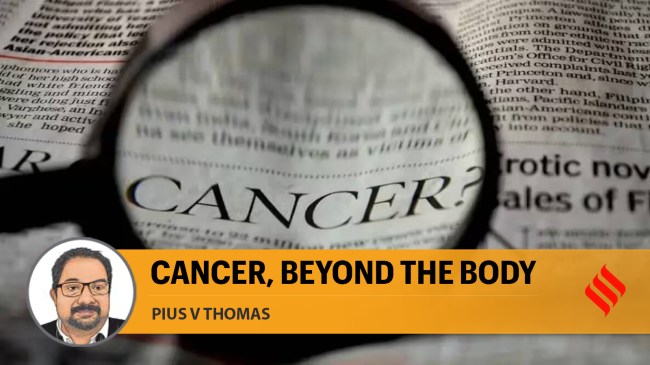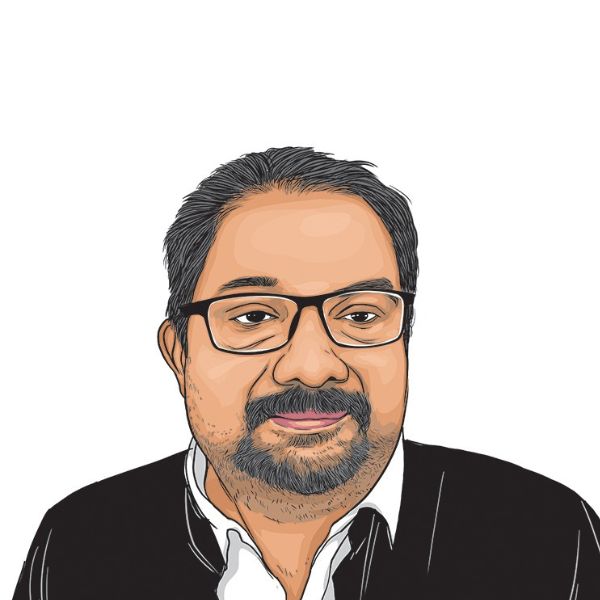Opinion In good faith: Looking at cancer beyond the body
Thinkers have drawn parallels between the effects of the disease and broader existential questions
 It was Erich Fromm who said in The Anatomy of Human Destructiveness that the life-affirmative forces are always countered by death-longing cultures. (File Photo/Pixabay)
It was Erich Fromm who said in The Anatomy of Human Destructiveness that the life-affirmative forces are always countered by death-longing cultures. (File Photo/Pixabay) We have a host of futurologists and thinkers who warn us of the end times. Slavoj Žižek’s Living in the End Times tells us that “the global capitalist system is approaching an apocalyptic zero-point” and asks us to open our eyes to four end-time crisis points: Climate change, biogenetics, “imbalances within the system itself”, and social divisions.
It was Erich Fromm who said in The Anatomy of Human Destructiveness that the life-affirmative forces are always countered by death-longing cultures. From the religious angle, The Gospel of Life (Evangelium Vitae), the encyclical of Pope John Paul II, interpreted the culture of death from a different standpoint as a culture that denies the value and dignity of human beings, which “ends up . . . becoming the freedom of ‘the strong’ against the weak who have no choice but to submit”. Does the culture of death structurally express the civilisational and collective discontent for life — increasingly over the years — in diseases like cancer? And in disvalues like spineless consumerism, substance abuse, self-defeating alcoholism, amassing wealth for its own sake, global irresponsibility toward other forms of life and nature, and false developmentalism? Though all the above are part of an entangled network, cancer seems to be more aggressive as it kills by growing along with the primary life cells.
What cancer is has been medically answered, perhaps definitively. However, a holistic understanding of the disease remains elusive. There is a view that certain diseases are destructive, biologically as well as in a broader existential sense. This can be a lethal combination. While somewhat debatable, the relation between substance abuse and cancer takes us to such an unfortunate combination. According to the American Cancer Society, substance abuse and addiction account for about 30 per cent of all cancer deaths. Drug abuse is connected to heart disease, mental health conditions, lowered immunity, and prominently, cancer. The question that is both difficult to answer as well as deeply significant is the relationship between emptiness (a marker, at times, of suicidal tendencies) in the core of the self and how it is manifested and constituted by those who suffer from it. Albert Camus had the pulse of this puzzle when he wrote, “There is but one truly serious philosophical problem and that is suicide.” Drug abuse can be the self-addressing meaninglessness as posed from without. Cancer gropes, in a deeper sense, with meaninglessness from within with abnormal and insensitive cell alignments.
Multi-dimensional perspectives on “life and cancer” are necessary to overcome the reductionist (medical and scientific) perspective. Great medical doctors like Carl Simonton, and thinkers like Fritjof Capra and Stanislav Grof, enlightened us four decades ago that cancer is to be understood and addressed in a socio-cultural, religio-cultural, emotional, economic, and environmental context. Such an understanding brings before us the “public health and cancer” dimension. This conception can lead to a wider democratic understanding of how to address and treat cancer preventively and therapeutically.
Thinkers like Ivan Illich have an alternative way of looking at cancer and through it, the whole concept of health, medicine and life. Illich wrote, in a chapter of Medical Nemesis entitled ‘The Killing of Pain’, that the medicalisation of pain “has rendered either incomprehensible or shocking the idea that skill in the art of suffering might be the most effective and universally acceptable way of dealing with pain”. Illich believed that “better health care will depend not on some new therapeutic standard, but on the level of willingness and competence to engage in self-care”. He defined self-care broadly as consisting of “personal activities [that] are shaped and conditioned by the culture in which the individual grows up: Patterns of work and leisure, of celebration and sleep, of production of food and drink, of family relations and politics”. Health enhancement is determined by the social environment. In his book Limits to Medicine, Illich discusses this elaborately. After Illich’s death in December 2002, an obituary in the London Independent reported that when he was “diagnosed with cancer in 1983, he refused all treatment… ‘I am not ill, it’s not an illness’, he declared. ‘It is something completely different — a very complicated relationship.’”
Ramchandra Gandhi, a great advaitin, talks about the biological insanity in cancer and asks, “Why do cells of life turn upon one another?” As a parallel, he asks, “…why do men turn upon one another even when survival and well-being are not at stake?” He extends this discussion to the moral and metaphysical unbelievability of saints like Ramakrishna Paramahamsa and Ramana Maharshi being affected and killed by cancer. For him, this provides insight as it finds a resemblance between the betrayal of jnanis by their own cells and the killing of Jesus Christ by his violent, sectarian contemporaries who could not tolerate the advaita love he preached and practised.
The understanding of cancer should be contextualised to define life and make us continuously seek and realise its harmonious context, which integrates social, religious, cultural, political and technological dimensions. We have many cancerous growths in our lives, such as false ideas of material development that “cancerously” kill nature and our ecosystem, and we need to invoke an organic culture of life that can functionally diffuse the culture of death from the inside. Perhaps we have some more time and the end-time crisis tendencies are not yet doomsday buttons but calls to more intimately search for the blessing of life in abundance.
The writer is associate professor, Department of Philosophy, Assam University, Silchar





